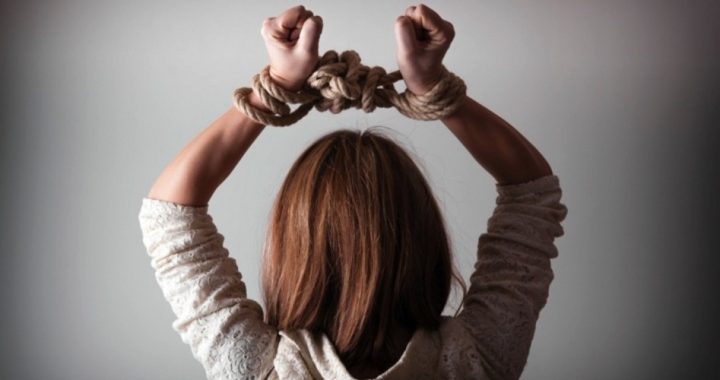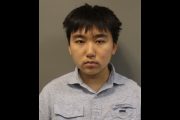
As Americans gathered around their televisions Sunday night to watch the showdown between the Denver Broncos and Seattle Seahawks, an FBI sting operation had already successfully rescued from the sex trade 16 juveniles, some as young as 13, and more than 50 adult women who were brought to New Jersey by their pimps in the weeks leading up to the Super Bowl.
Arrested in the operation were more than 45 pimps and their associates, FBI officials announced on Tuesday. Some of the traffickers admitted to having traveled to New Jersey from various other states in order to force women and children to engage in sexual acts with Super Bowl tourists for money.
“High-profile special events, which draw large crowds, have become lucrative opportunities for … prostitution criminal enterprises,” Ron Hosko, assistant director of the FBI’s Criminal Investigative Division, said in a statement. “The FBI and our partners remain committed to stopping this cycle of victimization and putting those who try to profit from this type of criminal activity behind bars.”
The juveniles rescued ranged from age 13 to 17. According to FBI officials, some of them were reported missing by their families, while others are foreign nationals.
According to the AP,
Pimps forced their victims to come to the New York City area from 13 states ahead of the game held Sunday. … The rescues and arrests all took place during the two weeks leading up to the game.
The sting involved assistance from various agencies. Fox News writes,
The FBI worked with federal, state and local law enforcement agencies over a six-month period leading up to the Super Bowl. The operation is part of the Innocence Lost National Initiative, established in 2003 by the FBI’s Criminal Investigative Division, in partnership with the Department of Justice and the National Center for Missing and Exploited Children, to combat child prostitution.
The Initiative is responsible for recovering over 3,000 children, CBS News reports. Likewise, the investigations and 1,400 convictions have culminated in long sentences for the perpetrators.
Danielle Douglas, a speaker who is a sex-trafficking survivor, said any major sporting event such as the Super Bowl is a prime place to find sex traffickers because they are looking to make big money.
“The Super Bowl is a huge, huge arena for sex trafficking,” Douglas said. Some visitors “are coming to the Super Bowl not even to watch football — they are coming to the Super Bowl to have sex with women, and/or men or children.”
Once it was determined that the 2014 Super Bowl would be held at MetLife Stadium in East Rutherford, New Jersey, officials immediately began to train workers at various surrounding agencies and businesses to spot signs of sex trafficking.
CBS News writes:
New Jersey officials set up training for legions of law enforcement personnel, hospitality workers, high school students, airport employees and others on signs of sex trafficking. Local houses of worship [handed] out fliers notifying congregants of warning signs, and truckers [were] trained to look for people — mostly women but also men — who may be held against their will. Sex trafficking, to be prosecuted as such, must involve — unlike prostitution — not only a buyer and seller of sex but also a pimp or trafficker controlling the transaction, according to the New Jersey attorney general’s office.
Officials [also warned] the public to watch for people who are forced into labor and individual pimps exerting control over young women and men who are oftentimes underage.
Bergen County Prosecutor John Molinelli indicated that prostitution ads were popping up on Internet sites in the days leading up to the Super Bowl and that law enforcement officials and agents were able to garner information from them.
“When you’re about ready to have 400,000 men come to this area of the country,” Molinelli said, “you’re invariably going to have more people try to take advantage of that by providing prostitutes and prostitution.”
According to Special Agent in Charge James Hayes of Homeland Security in New York, authorities had reached out to over 20 hotels in the New York City area to instruct them on how to identify victims of sex trafficking.
Hotels and nightclub employees were told to look for women who appeared not to be in control, or who exhibited signs of either physical abuse or constant fear.
Kathy Friess, Program Director at the New Jersey Division of Criminal Justice, led the presentation for hotel and nightclub employees, and provided insight into sex trafficking. She emphasized that it often involves a local woman forced into the sex trade by a man she mistook for having romantic intentions.
Prior to the Super Bowl, Acting Attorney General John Hoffman voiced confidence that the training provided adequately prepared people to spot signs of sex trafficking.
“We’ve enlisted, basically, every service provided that people coming to the Super Bowl are going to run into,” said Hoffman. “There are a lot of eyes that are going to be on their activities and going to be on spotting potential victims of this crime.”
Despite the successful sting, Hayes states that sex trafficking remains an ongoing problem, and is especially difficult to target as many of the young children who have been forced into the sex trade are from countries where law enforcement is something to be feared.
“New Jersey has a huge trafficking problem,” stated U.S. Rep. Chris Smith (R-N.J.), who is also co-chairman of the House anti-human trafficking caucus. “One Super Bowl after another after another has shown itself to be one of the largest events in the world where the cruelty of human trafficking goes on for several weeks.”
While it is often difficult to know exactly how many trafficking cases occur each year, a 2012 Polaris Project report shows that 20,652 calls reporting sex trafficking came through the project’s hotline. Polaris Project CEO Bradley Myles reports that 330 of those calls came from New Jersey.
“The overall size of the phenomenon in the United States is much more significant than statistics show,” Myles said.
Jane Wells, a filmmaker who recently released Tricked, a documentary about human trafficking, said it is her hope that law enforcement will focus on sex trafficking beyond the time-frame set by large sporting events.
“This is a 365-days-a-year problem,” Wells said.




